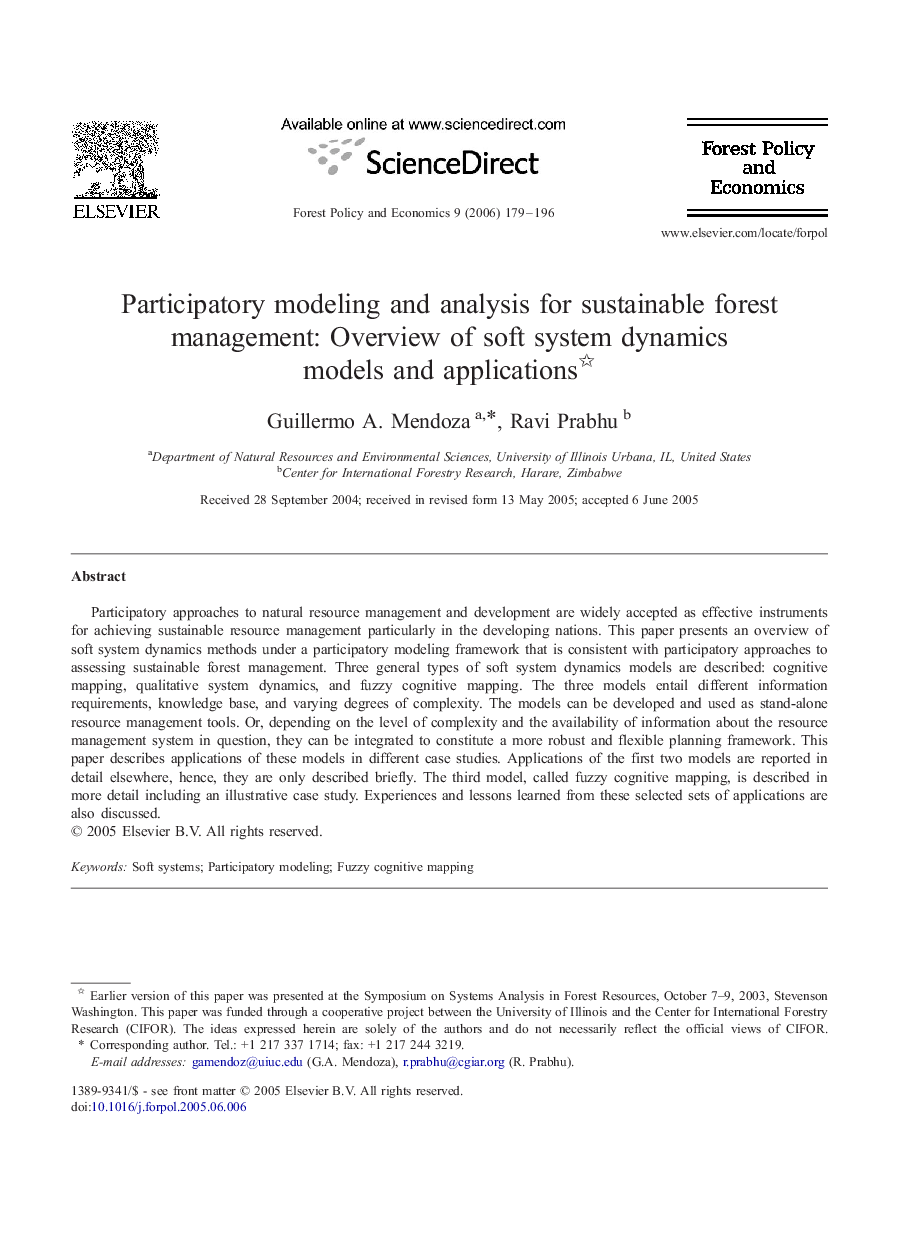| Article ID | Journal | Published Year | Pages | File Type |
|---|---|---|---|---|
| 91647 | Forest Policy and Economics | 2006 | 18 Pages |
Participatory approaches to natural resource management and development are widely accepted as effective instruments for achieving sustainable resource management particularly in the developing nations. This paper presents an overview of soft system dynamics methods under a participatory modeling framework that is consistent with participatory approaches to assessing sustainable forest management. Three general types of soft system dynamics models are described: cognitive mapping, qualitative system dynamics, and fuzzy cognitive mapping. The three models entail different information requirements, knowledge base, and varying degrees of complexity. The models can be developed and used as stand-alone resource management tools. Or, depending on the level of complexity and the availability of information about the resource management system in question, they can be integrated to constitute a more robust and flexible planning framework. This paper describes applications of these models in different case studies. Applications of the first two models are reported in detail elsewhere, hence, they are only described briefly. The third model, called fuzzy cognitive mapping, is described in more detail including an illustrative case study. Experiences and lessons learned from these selected sets of applications are also discussed.
